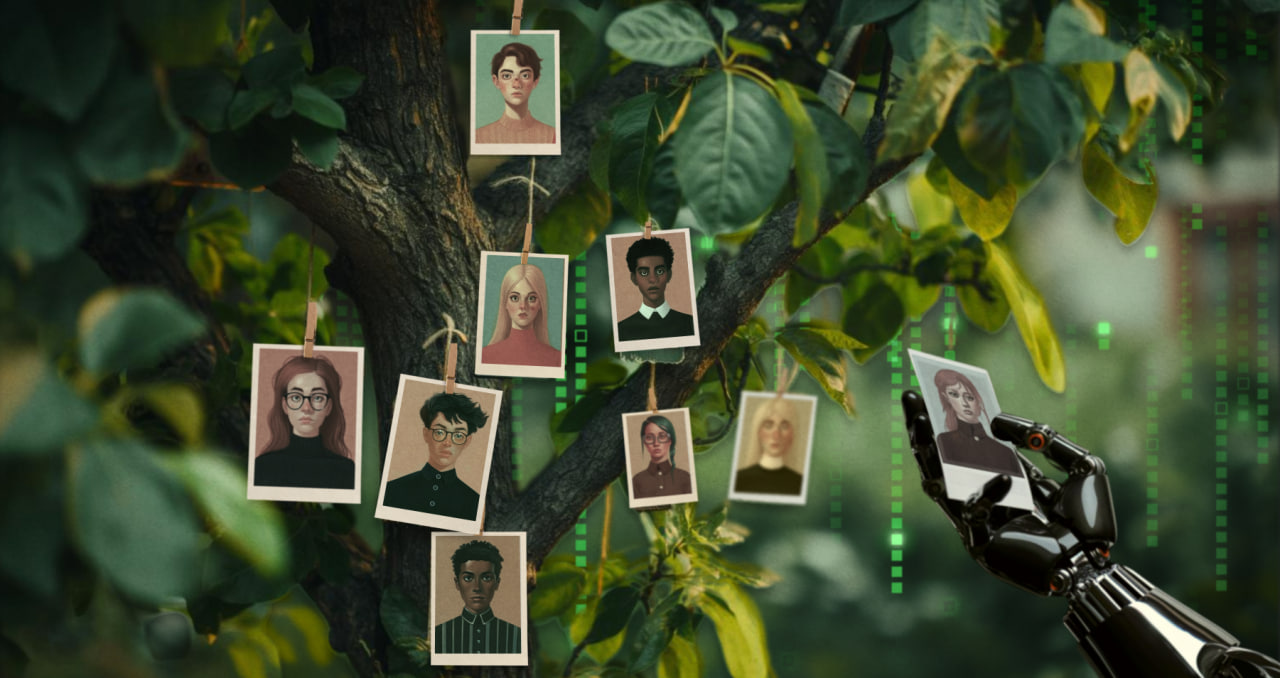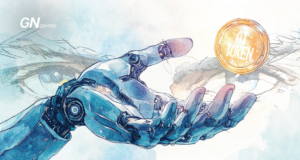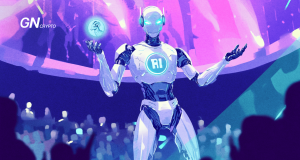How Blockchain May Help Us Learn More About Our Family Tree

Tracing information accurately and securely is one of the main benefits blockchain technology offers. This feature is a great asset in documenting any type of information, including family history and genetic connections.
Sometimes people may want to know more about their ancestors. They might be curious about their origins, want to explore their family's medical history, create a special gift for a family event, or share their roots with future generations, even if they have limited information about the past. According to a survey by Ipsos, the majority of Americans think it’s important to know about their ancestors and that they are curious about family history, it makes them feel connected to their roots and even proud. Another research, however, shows that over half of the population can’t name any of their great-grandparents.
Interestingly, in a world where information is at our fingertips, facts that directly relate to us are still not easily accessible. Typically, when someone wants to learn more about previous generations of their family, they have several options: talk to relatives, go through archives, or work with genealogists to find lost connections. Meanwhile, it’s easy to get on the wrong track during research because of confusing information and possible misinformation. Although genealogy, the study of family and history, progresses due to digitalization, information widely remains out of reach. Data stored in physical archives is vulnerable to disasters, while online registries can be hacked or forged.
Blockchain, as an alternative to traditional databases for documenting and exchanging information, provides a solution to record-keeping challenges. First, data recorded on the blockchain can’t be altered nor can it disappear because of its structure where every block of data is connected to the previous one and verified by thousands of nodes.
Another benefit is that information is easily accessible in real-time, without the need to go over the physical archives. At the same time, encryption techniques provide a level of anonymity, helping to maintain individuals' privacy rights. People can use blockchain to securely store personal information, such as family trees, and maintain ownership rights over their data.
Family network. Source: bankofmemories.org
Another blockchain-based project focused on ancestry analytics and DNA testing is Nebula Genomics. The company was founded in 2016 by American geneticist, Professor George Church and two Harvard students, Kamal Obbad and Dennis Grishin. Nebula Genomics offers users genome sequencing services, analyzing a person's genetic code and giving detailed reports about their health conditions, diseases, ethnic background, familial connections, and other information. Users can choose to sell their data to researchers on a decentralized marketplace where their privacy is ensured through encryption techniques.
DNA and personal information. Source: nebula.org
Traditional vs Blockchain-Based Genealogy Platforms
Genetic testing and ancestry research have been hot topics in recent years, with more than 26 million people taking an in-home test to find personal information about themselves. Among the genealogy platforms are 23andMe and Ancestry, both using centralized online databases, mainly cloud storage.
DNA tests include sensitive information about people, including their health conditions, ethnicity, and genetic relationships, which raises concerns over privacy, security, and control. In case of hacks, the attacker can access all users’ information stored in the dataset. In December 2023 a major data breach happened at 23andMe where a hacker gained access to the personal information of 6.9 million users, which in some cases included birth years, family trees, and geographic locations. The hack is currently being investigated by authorities.
As an alternative to centralized systems, blockchain-based platforms store information through a decentralized network. Information is distributed between different parties, making hacks more difficult. Another difference between traditional and blockchain-based platforms is the privacy level. Platforms like Nebula Genomics protect genomic data privacy using encryption techniques, such as hiding the plaintext through cryptographic hashes. At the same time, users have full control over their data as the blockchain keeps records transparently.
Looking Ahead
The idea of everyone storing their family tree on the blockchain remains futuristic. However, blockchain’s ability to encrypt data, provide privacy, and ensure easy accessibility is a promising feature in genomics for both individual research and medical purposes. This enables scientists to study genetic diseases and personal traits without needing to know exactly who the data owner is. Meanwhile, users can securely access their family trees, collect data, and share information as they wish, benefiting from new tools and resources.
The content on The Coinomist is for informational purposes only and should not be interpreted as financial advice. While we strive to provide accurate and up-to-date information, we do not guarantee the accuracy, completeness, or reliability of any content. Neither we accept liability for any errors or omissions in the information provided or for any financial losses incurred as a result of relying on this information. Actions based on this content are at your own risk. Always do your own research and consult a professional. See our Terms, Privacy Policy, and Disclaimers for more details.



























